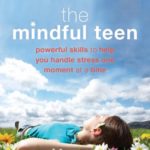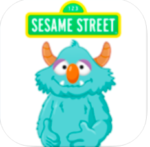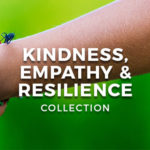Mindfulness
This website has 7 self-care strategies that teachers can utilize in their classrooms.
Being a teen is stressful! Whether it’s school, friends, or dating, the teen years are full of difficult changes-both mentally and physically. If you’re like many teens, you may have difficulty dealing with stress in effective ways. You aren’t alone, and there are things you can do to stay calm, no matter how stressful life becomes. All you need to do is stop, breathe, and be mindful and aware in the present moment.
Students are likely experiencing strong, complex emotions. Simply shifting schedules can feel like a huge disruption in a child’s life. Breathe for Change has created free classroom guides such as Classroom Guide to Mindfulness & Presence, Classroom Guide to Cultivating Love & Gratitude, and Classroom Guide to Compassion & Courage to help parents and teachers support students as they acknowledge and move through difficult and confusing feelings.
Backed by extensive positive psychological research, MindUP aims to cultivate mindful, emotional, social techniques to improve behavior and learning by teaching children skills to manage emotions and behaviors, reduce stress, sharpen concentration, and increase empathy and optimism.
Breathe, Think, Do with Sesame by Sesame Workshop. Available for iOS and Droid, and in both English and Spanish, this app offers Interactive cartoons which teach how to deal with frustration, separation anxiety, disappointment, impatience, and fear of the dark. It suggests using a “breathe, think, and do” strategy — breath slowly three times, think of a plan (three plans per problem are suggested), then do it.
This collection of videos and lesson plans is about kindness, empathy, and the importance of practicing mindfulness. These resources will help educators foster resilience in students grades 6-12, and include strategies to help teenagers cope with the stresses of everyday life, as well as specific challenges. The collection offers proactive approaches to help students forge new friendships and explore the concepts of self-care, care for others, and the responsibilities associated with being a supportive community member.
Teachers face stressful days and often can be given overwhelming tasks. Studies show that those who show gratitude, despite the hardships, often see a decrease in stress, are more productive, and feel much better overall. The goal of this challenge is to make your life a little bit better one day at at time. “The 5 Day Gratitude Challenge” aims to put a little structure into giving thanks, and offers an opportunity to encourage people.
MARC fosters and publicizes research to support the scientific benefits of mindful awareness, offering tools and classes to professionals in mental health, medicine, and K-12 education.
Megan Cowan, founder of the Mindful Schools program, provides some guidelines for educators who want to incorporate mindfulness into the school day.
An assessment measuring mindfulness in children, developed by Dr. Ruth Baer.
A series of meditation recordings designed to introduce mindfulness to teens.
The Teaching Channel provides free membership to create an online community in which teachers can learn, connect, and inspire each other to improve outcomes for K-12 students across America. The website provides over 175 videos on how to effecively teach to the Common Core Standards.









